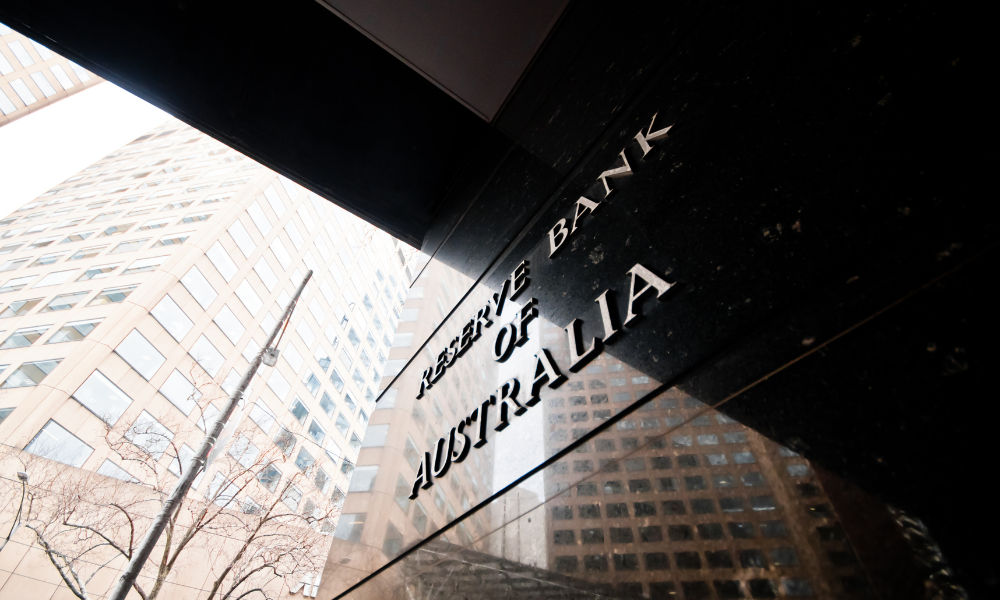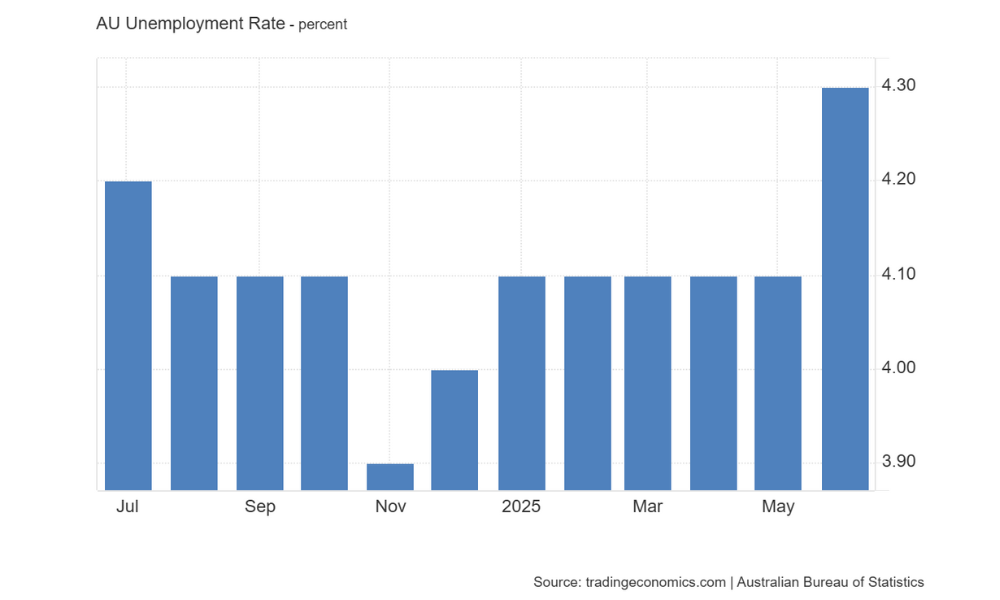Australian unemployment is rising – this could be a boon to RBA doves

Australia’s unemployment rate jumped to 4.3% in June 2025, breaking a five-month streak and overshooting forecasters’ expectations of 4.1%, according to the Australian Bureau of Statistics.
It marks the highest jobless rate since November 2021, with he number of unemployed Australians climbing by 33,600 to 659,600. There was a notable rise in those seeking full-time positions.
Overall employment barely budged, rising by just 2,000 to 14.62 million – far short of the 20,000 increase that had been forecast.

The figures are nothing short of a flashing signal for the Reserve Bank of Australia (RBA) to cut interest rates in August following the surprise July hold.
RBA Governor Michele Bullock justified the hold by citing lingering inflation concerns.
“I think betrayal would be to let inflation get out of hand,” Bullock said in a press conference following the shock hold. She contended that it is more important to “try and meet our mandates of keeping inflation low and keeping unemployment as low as we can”.
Given the upside surprise on June unemployment, it is likely that the scales have well and truly tipped to an August cut.
Furthermore, while consensus among the big banks is for a 25-basis-point reduction, today’s upside unemployment surprise could galvanise the dovish contingent of the Monetary Policy Board into pursuing a jump 50-basis-point cut. Subdued consumer confidence is also likely to compel them.
Although July’s sentiment index edged up to 93.1 from June’s 92.6, Westpac’s head of Australian macro-forecasting, Matthew Hassan, described the improvement as “another false start.”
He noted that while there was a slight overall lift in sentiment for the month, survey responses indicated clear disappointment following the RBA’s unexpected decision to keep rates unchanged at its July meeting.
Specifically, those surveyed before the RBA’s announcement recorded a sentiment index of 95.6, but this dropped to 92 among respondents after the decision, dampening what could have been a more substantial rise in confidence.



